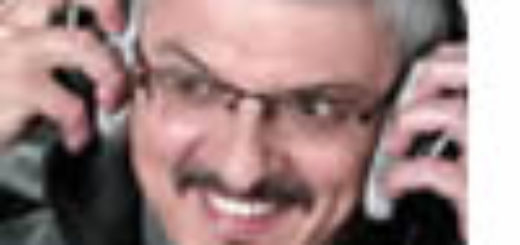Chris Botti for Opinia
Chris Botti is one of the world’s outstanding jazz musicians in the world. He has recently performed at Ronnie Scott’s in London as part of a world tour to promote his latest album Italia which received a Grammy nomination for Best Pop Instrumental Album. Chris spoke to Opinia about his passion for music, his life and why he loves playing for Polish audiences.
He is a charismatic virtuoso trumpet player with a style that transcends jazz, pop and classical genres. Born in Oregon, USA he spent 2 years of his childhood growing up in Italy. Musical credits include performing or recording with artists including Sting, Frank Sinatra, Dean Martin, Chaka Khan, Rod Stewart, Paul Simon, Burt Bacharach, Andrea Bocelli and Paula Cole.
You have just come back from Poland. What do you like about playing in Poland. That was your third visit right?
CB: This was my third visit as a solo artist but I have been there two other times with other artists – Sting and Paul Simons years before. But my first exposure to Poland really opened my eyes when I was in Sting’s band when we played in Katowice. Because we had been touring all over the world it made so obvious to me when I saw the audience. I hade never seen anything like it. Having gone back to Poland and played three times I can honestly say Poland has a rare combination of music fans that are incredibly knowledgeable and loud. For instance, I know it’s a broad generalisation but you can go to South America and they are really loud, or you can go to Japan and they are incredibly knowledgeable, but really quiet. In Poland the audience is really loud and they know all – who played with whom, on which record, and they have all the old records. I have never seen anything like that. That was my first experience of really seeing that while I was with Sting and subsequently when I have gone back, I think eight shows now in Poland. I am not just saying this because I am speaking to you now, but have said this to many press that I think the Polish audience has in my experience been the best I have ever seen.
Do you have any plans to perform with Polish musicians? Have you thought about it?
CB: Yes, I am a fan of Anna Maria Jopek and so she came to the show the other night and we always try to get together and make some music together. Hopefully that will happen in the next year. I would like to do that.
Marek Niedźwiecki, one of Polish top radio presenters promotes your music a lot.
CB: The Polish people have been fantastic to me. I am hoping we can come back there, because the Ronnie Scott’s thing is more of a showcase for the record company and some booking agents because we have been playing in much bigger places. This is such a tiny club, I mean this is like 250 people. We are planning to organise a show in Cracow.
When you get to Cracow you need go and see Zakopane.
CB: It would mean being like a human being and being like a tourist. I can’t do that. We have a saying in our band that you don’t leave the bubble. This means that all I see is the hotel room and the gig.
It’s strange but English People don’t seem to know you, yet everyone in Poland does?
CB: I know, we played in Warsaw three nights ago and they underbooked us which is so rare. So they put us in a 1200 seater hall and it all went just like that (he snaps his fingers). On the same night Dee Dee Bridgewater was playing and so they said: do you think we could ask for another show and it went just like that. So we did two one hour shows, one at 8pm and one at 10:30 pm and we sold out of all our CD’s. Bang, just like that.
In March 2004 you started your radio show Chill with Chris Botti. What was that radio adventure about?
CB: I no longer do it. We stopped doing it about a year and a half ago. Americans don’t know anything about chill-out music. Although chill-out is probably the largest kind of music in the world outside America. I mean it’s the most popularised genre. In Sydney or London you will always hear that style music in hotels but Americans know zero about it. So basically in 2000 or 2001 I became a fan of it and had the opportunity to make this radio show. I used my name to expose some of the artists. But since then a couple of things happened to me. My own music personally became more jazz, less electronic and more acoustic and orchestral, more like playing than using grooves. My career started sky rocketing. So while the career was going up I was doing more of an organic style of music and I felt this was going against my chill-out show. It just splintered it off in a way that I wasn’t happy with so I just pulled the plug on it.
I remember seeing one of your first concerts at Blue Note New York in July 2005. How significant was Blue Note in your career?
CB: Well, I am a hell of a lot better than I was in July 2005. I remember that stint well and it’s completely different. You know I am in that very fortunate position of being able to hire and keep away from other band leaders like Michael Bublé (he laughs) you know great musicians in my band. You know it’s like making a sculpture, every day you pick away at it until it is realised and you’re crafting it. So crafting my band in a way that makes me launch on my trumpet is something that’s been most tied in to my success. So we played at the Blue Note in 2005 and have subsequently gone back to the Blue Note every December for 2 weeks. I changed it so in the summer we play Carnegie Hall. Then in the winter we do the two weeks at the Blue Note so it’s like a vacation for me staying in New York.
In what way is New York special to you?
CB: Well, things that make this place special to me is the historic importance to jazz. It is the heartbeat to the city and the ability to walk in the city. First of all, America doesn’t have many cities which have anything that resembles the word architecture that is European like New York and Boston. Most Americans get in the car, drive to Starbucks then they get in the car and drive back. There is no European sensibility sense of walking. To me that is all of New York that I love so much. I love to just walk and look at the shapes of the buildings and the way the light hits the buildings. Someday I will move back there. Now I get no mail anywhere.
How long have you lived there?
CB: In my life I have lived in New York for sixteen or seventeen years. But I don’t live anywhere now. Everything I own is in the hotel room upstairs. I get no mail anywhere, everything I have fits in one suitcase and that’s it.
You seem to be constantly on the road for the past few years. What keeps you going?
CB: Fear. (he pauses to reflect). I think it takes so much more time for an instrumental artist to penetrate the consciousness of general public. For instance you can have a video on a pop song and the next day the whole world knows who you are. But for an instrumentalist to get a person to think that’s a trumpet – what the hell is that? Then I recognise the sound and I will get out of my car and go into the store and buy it. It’s a much longer event so when you are able to do it you don’t want to lose all that hard work. So you use fear as a motivator, in a positive way to drive yourself and make sure you are disciplined. It is all about feeling good and being on the road with the band, to keep crafting that band over. I guess that what keeps me going is a healthy dose of gratitude and fear that I don’t want to lose that ability to say I have been lucky and fortunate to do what I do.
As a professional musician of some standing do you still rehearse every day?
CB: Of course, no. Getting my band to rehearse is like pulling teeth without any novocaine. It’s brutal and the more we travel I realise that. Have you seen our show? This is what I am most proud of. If you go and see a band, you generally see a front person and then behind them a bunch of people that all play parts. They all have their parts and they all make their hits at the same time. The band gets cut off and Miles Davis didn’t have any of that. There was a front person then, Miles Davis would walk to the side of the stage and then in front of you. You would witness Herbie Hancock, Chick Corea, Pete Cosy, so in a way that band was its own visual entity and the audience not only became fans of the overall sound of the band but the individual charisma of the musicians. So I wanted to make it like. We don’t have parts necessarily, but I walk to the side of the stage to give my trumpet chops a rest and let the audience getting to know and feel the artists coming in and out, both with humour, musicianship and history because in my band there are all already famous jazz musicians. I want all that stuff to meet on stage and ultimately if you try to rehearse or bottle it, it kind of works against you.
Do you produce the sets or have someone do that for you?
CB: No, I do it. My day from the minute I wake up to the time I go to bed is basically like tinkering in my brain with every single little nuance of the set – where, how long this song is going to be and what I am going to say in between, the intro. In one way it is incredibly loose and in another way the microscope is on each one of the musicians because so much of this set is incredibly varied. There is repertoire that sort of borders classical, there’s repertoire that’s definitely mainstream jazz, and then there is stuff that’s like loose punk music. By that I mean – I go in and out all the time and have reference points which are real. You know reference points to the jazz stuff that I am talking about isn’t like ‘hey welcome to the club’ (Chris snaps his fingers to fast rhythm), we play Flamingo Sketches where you have to improvise but with restraint and not just say ‘welcome to the club we’re going to play it had to be you’. There’s so much of what I call that trad jazz thing that I try to stay away from and sculpt in a way with my pop sensibility to make a show, but also to allow the musicians to breathe in that show. I mean every single day so when you saw us in July 2005 that was like a kid this big of the band (he indicates small).
The latest record Italia, released last year in the States, gained you a Grammy nomination for the Best Pop Instrumental Album. What inspired you for that album?
CB: Well I’m Italian and Sketches of Spain was already taken by Miles Davis. I have always been a fan of Italian music and I have covered two things prior on my When I Fall in Love CD – Cinema Paradiso and Time to Say Goodbye. That sensibility, that part of the world is instantly romantic and I think people associate themselves with Italy even if they are not Italian or never been there. Whether it’s the food, fashion or wine, the way they live their lives. I guess what I am trying to say is that everyone has some sort of roots in Italy whether they’re from there or they have any blood. In their mind the romance is the root. I’m not saying I am the ultimate Italian I have come back to my homeland or anything like that. I am just saying that there is a beautiful simplicity to the music that I enjoy very much. I had a good time doing the record and it is doing great.
Thank you for your time and good luck.





